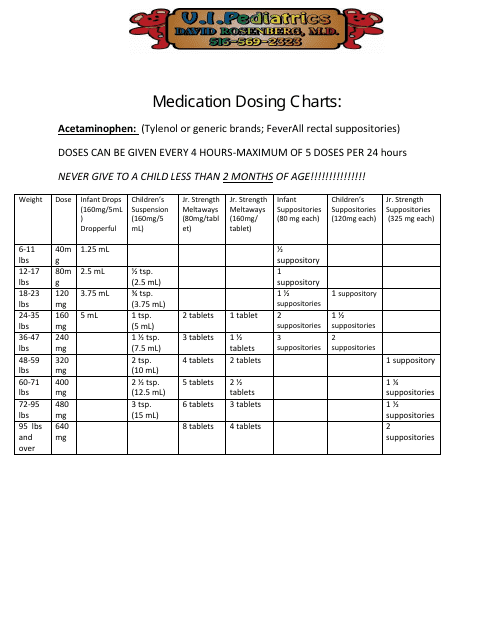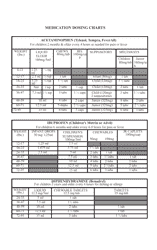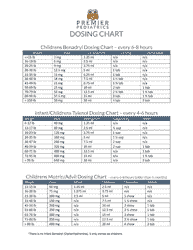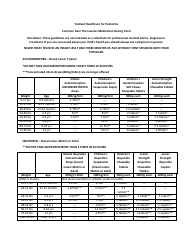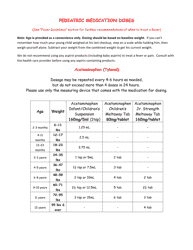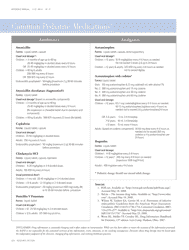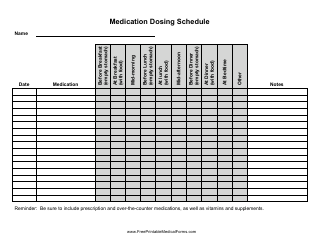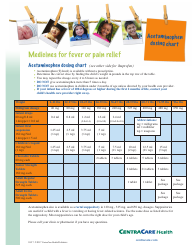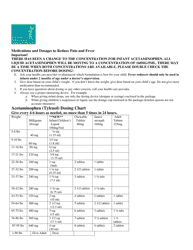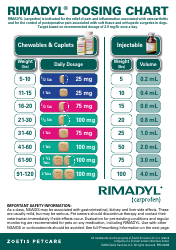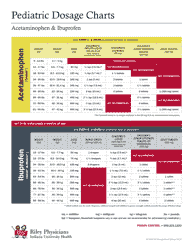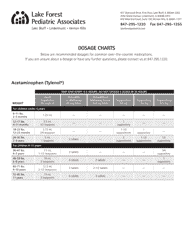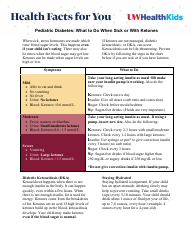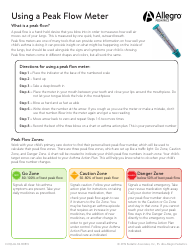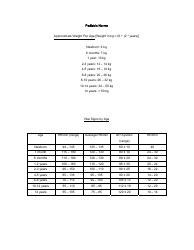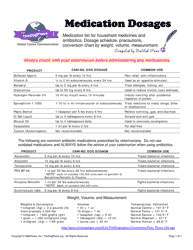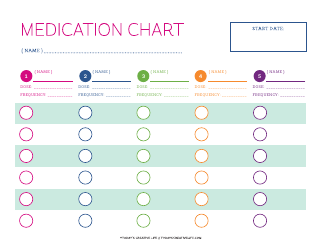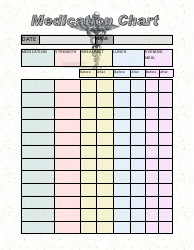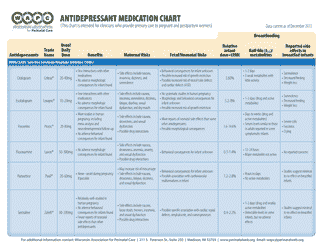Pediatric Medication Dosing Charts
Pediatric Medication Dosing Charts are used by healthcare professionals, especially pediatricians, to determine the appropriate dosage of medication for children. Dosages in children are often based on their weight and age, which is why specific charts are needed. These charts can help prevent overdosing or underdosing, thus ensuring the safety and effectiveness of the medication. They allow healthcare providers to quickly reference the correct dose of a certain medicine given a child's weight or age, which is crucial in emergency situations. Pediatric Medication Dosing Charts are an important tool in achieving accurate and safe drug administration in pediatric care.
The Pediatric Medication Dosing Charts are usually filed by pediatricians, healthcare providers, and healthcare institutions such as hospitals or clinics. These charts are vital resources to ensure the accurate and safe dosing of medication for children. These charts often include information such as the child's age, weight, and the appropriate dosage of the medication based on these factors. In the USA, it's the FDA (Food and Drug Administration) that approves and oversees these guidelines.
FAQ
Q: What is a pediatric medication dosing chart?
A: A pediatric medication dosing chart is a guide used by healthcare professionals to determine the appropriate medication dose for a child. This is determined based on the child's weight and age.
Q: Why do dosages vary in children?
A: Medication dosages vary in children because children's bodies respond differently to medication compared to adults. Factors like a child's weight, size, and age can affect how a child's body metabolizes medication.
Q: Why is pediatric medication dosing important?
A: Pediatric medication dosing is essential to ensure the safety and effectiveness of the treatment for children. Giving too much medication can lead to overdose and serious side effects, whereas too little can render the treatment ineffective.
Q: How do healthcare professionals calculate pediatric dosages?
A: Healthcare professionals typically use a child's weight to calculate medication dosages. The specific formula varies depending on the medication, but a common method is: (adult dosage/70) x child's weight in kg.
Q: Is pediatric medication dosing the same in every country?
A: Pediatric medication dosing guidelines may vary by country but are generally similar because they are based on scientific evidence and research.
Q: What should I do if my child misses a dose of their medication?
A: If your child misses a dose of their medication, give the missed dose as soon as you remember. If it's close to the time of their next dose, skip the missed dose. Never double up on a dose to make up for a missed one.
Q: Can I use an adult medication dosing for my child?
A: No, you should not use an adult medication dosing for your child. Children and adults process medications differently, therefore, administering an adult dose to your child could lead to an overdose or not provide effective treatment.
